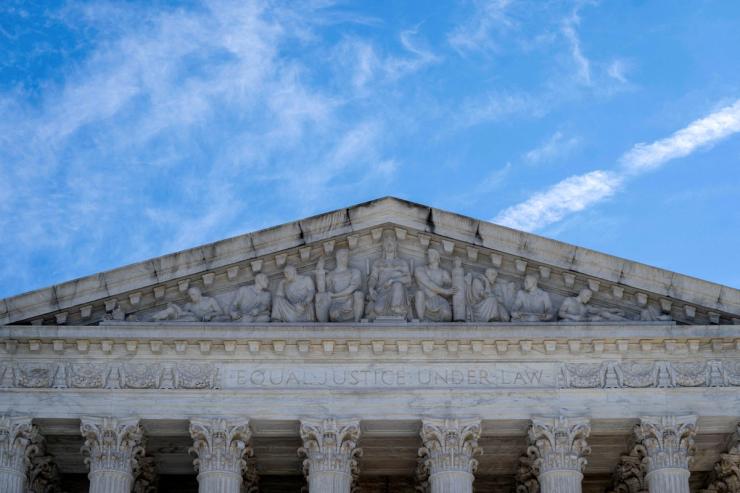The News
The Supreme Court on Tuesday ruled that Texas can enforce a controversial immigration law that gives local police — not just federal authorities — the authority to arrest people suspected of entering the country illegally.
The court rejected an emergency request by the Biden administration to block the law, but litigation will continue in the lower courts, meaning the law could still be blocked in the future.
The conservative-majority court voted 6-3, with all three liberal justices dissenting. The Biden administration has opposed the law, saying states have no authority to arrest and deport migrants.
“The court gives a green light to a law that will upend the longstanding federal-state balance of power and sow chaos,” liberal Justice Sonia Sotomayor wrote in a dissenting opinion.
But Texas Attorney General Ken Paxton has argued that the law, known as SB4, complements federal law. The Constitution “recognizes that Texas has the sovereign right to defend itself from violent transnational cartels that flood the state with fentanyl, weapons, and all manner of brutality,” he said.
SIGNALS
Law poses numerous harms, opponents argue
The court’s liberal justices and the Biden administration argued that the law will negatively affect U.S.-Mexico relations, put migrants at increased risk, and more. In their dissenting opinions, Justice Sonia Sotomayor and Justice Ketanji Brown Jackson wrote that the law will: “disrupt sensitive foreign relations, frustrate the protection of individuals fleeing persecution, hamper active federal enforcement efforts, undermine federal agencies’ ability to detect and monitor imminent security threats, and deter noncitizens from reporting abuse or trafficking.”
Biden’s Solicitor General Elizabeth B. Prelogar wrote that the Texas law amounts to “interference with the nation’s ability to speak with one voice in international affairs,” adding that it would “significantly harm” the United States’ relationship with Mexico.
Law is necessary because federal government isn’t doing enough to curb border violence, Texas says
Texas lawmakers have argued that the federal government isn’t doing enough to curb illegal immigration, and that violence brought about by what they regard as a lack of border controls has required the state to step in, the Texas Tribune reported.
“Texas is the nation’s first-line defense against transnational violence,” wrote Texas Solicitor General Aaron L. Nielson in a court filing. The state, he said, “has been forced to deal with the deadly consequences of the federal government’s inability or unwillingness to protect the border.”



